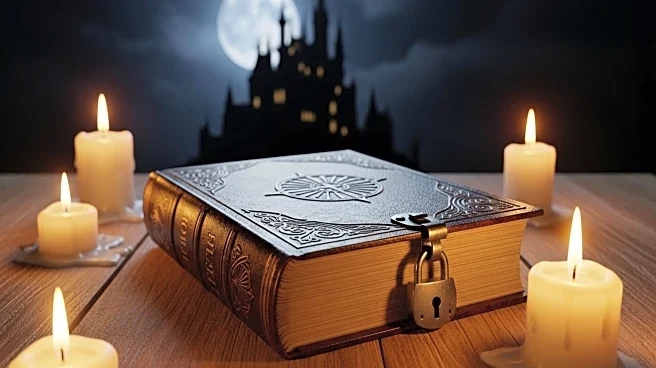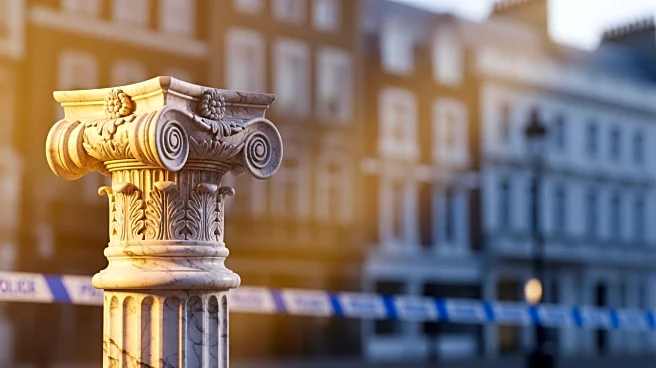What's Happening?
National Frankenstein Day is celebrated on the birthday of Mary Wollstonecraft Shelley, the author of the iconic novel 'Frankenstein'. The day commemorates Shelley's contribution to literature and her influence on the horror genre. Shelley began writing 'Frankenstein' at the age of 18, inspired by a challenge from Lord Byron to write a ghost story. The celebration includes references to various adaptations of the Frankenstein story, including Andy Warhol's 'Flesh for Frankenstein' and the 1910 version produced by Thomas Edison's studio. The day also highlights Shelley's unique background, being the daughter of Mary Wollstonecraft, a proto-anarcha-feminist, and philosopher William Godwin.
Why It's Important?
National Frankenstein Day serves as a reminder of the enduring impact of Mary Shelley's work on literature and popular culture. 'Frankenstein' has inspired countless adaptations and discussions about the ethical implications of scientific experimentation and the nature of humanity. The celebration of Shelley's work underscores the importance of recognizing pioneering women in literature and their contributions to shaping cultural narratives. It also provides an opportunity to reflect on the historical context in which Shelley wrote, including the influence of her parents' progressive ideas.
What's Next?
As National Frankenstein Day continues to be celebrated, it may inspire renewed interest in Shelley's work and its themes. Literary scholars and enthusiasts might explore new interpretations of 'Frankenstein' and its relevance to contemporary issues such as bioethics and artificial intelligence. The day could also encourage educational initiatives that highlight the contributions of women writers and promote discussions about gender and creativity in literature.
Beyond the Headlines
The celebration of National Frankenstein Day invites deeper exploration into the ethical and philosophical questions raised by Shelley's novel. It challenges readers to consider the consequences of unchecked scientific ambition and the moral responsibilities of creators. The day also highlights the cultural significance of horror as a genre that reflects societal fears and anxieties, offering a platform for critical engagement with these themes.








